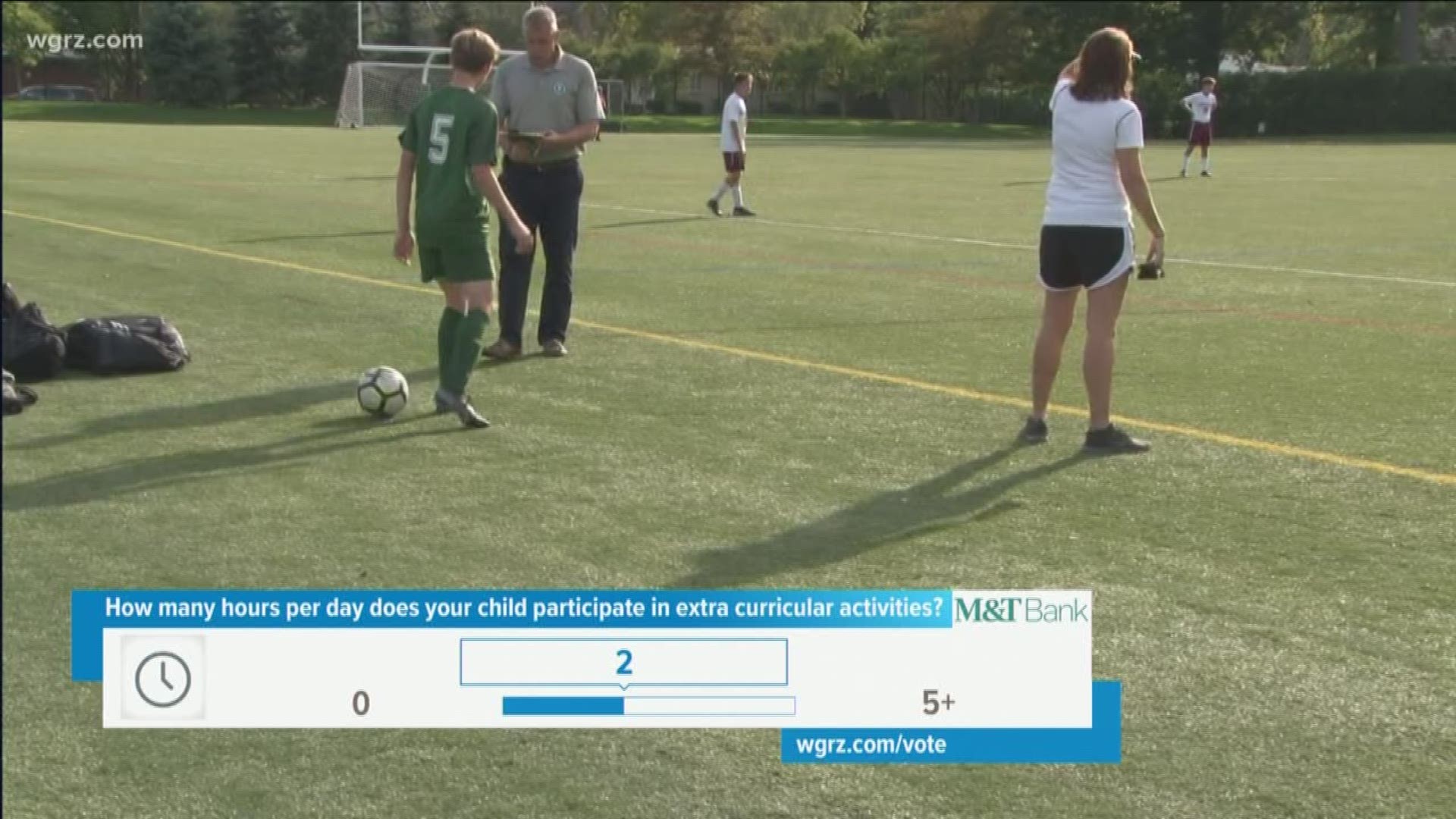BUFFALO, N.Y. — From helping them pack up and get to practice, to cheering them on from the sidelines, there's really no off-season for Tracy Gardener of Snyder, and her kids Jack and Ada. They're both involved in multiple sports, which each require team and individual training sessions throughout the year.
"My son started soccer at Nichols, my daughter is already into her training for basketball and getting ready to try out for travel basketball. My son is getting ready to try out for travel basketball, and he'll start his winter training for baseball," Gardener said.
With so many options for activities, you may find your family becomes overwhelmed with obligations. As the new school got started, 2 On Your Side spoke with Claire Cameron, an educational psychologist at SUNY Buffalo, about this. She pointed us to a famous study on the topic of "over-scheduling."
"Most children and youth participate in anywhere from 5 to 10 hours per week," Cameron explained. "At any given time, it's about 6 out of 10 children that are participating in something structured, like a extra-curricular, and 4 out of 10 who are not."
Cameron says that the study found that it's not the over-scheduled kids that parents might want to worry about. It's the under-scheduled ones.
"The over-scheduling hypothesis is this idea that American children are over-scheduled. They have too much going on, and their schedules are too full, and they don't have time to just be kids. When you go and talk to real children and real families, for the most part, participating in these extra curricular activities is linked with good things," Cameron explained. "Children who don't have somewhere structured to be can find themselves without a trusted adult around, they can find themselves in potentially unsafe places."
Since the original study on over-scheduling was conducted in 2008, we wanted to know if the research holds up more than a decade later. Cameron shared that even though there isn't research on the topic yet, in her opinion, the findings are even more relevant in today's technology-saturated world.
"I think the more that we can engage children and youth in real, in-person interactions around shared goals and activities that everybody's enjoying, that that's going to be beneficial, and that's going to be time they're not spending on their phones," Cameron said.

